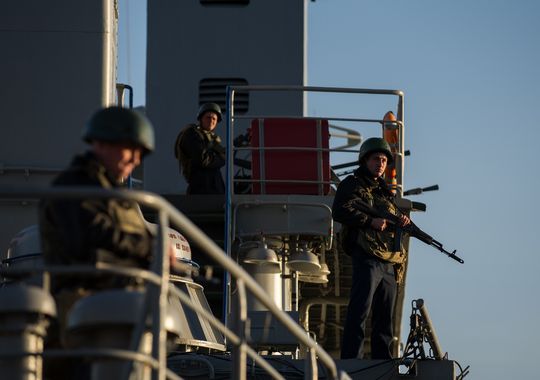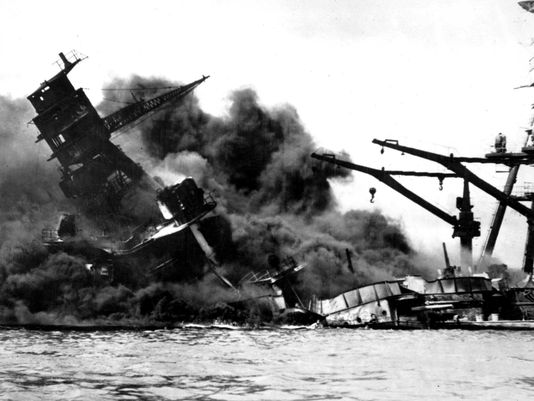Wall Street reaction to shocks often short-lived
The U.S. stock market has had its fair share of shocks. The attack on Pearl Harbor. The Cuban Missile Crisis. JFK's assassination. The 9/11 terror attacks. To name just a few.
But, in general, the shocks, no matter how scary, haven't kept the U.S. stock market down for long, according to S&P Capital IQ data analyzing 14 market shocks dating back to the Japanese attack on Pearl Harbor in December 1941.
Following those 14 shocks over the past 73 years, the median first-day decline for the Standard & Poor's 500 stock index has been 2.4%. In today's trading the benchmark index is down 1.1%.
STOCKS MONDAY: How markets are doing[1]
And the shocks, which also include the OPEC oil embargo, the resignation of President Nixon, the collapse of Lehman Brothers and the 2010 "Flash Crash," lasted just eight days, with total median losses of 7.4%, says S&P Capital IQ. The market recouped its losses 14 days later.
That's not to downplay the potential risks if the current conflict between Russia and Ukraine takes a more violent turn and quickly shifts from a political crisis to an economic one. But history suggests financial markets are resilient when confronted with similar threats.
The stock market, of course, survived the Cold War, European conflicts in Kosovo and Georgia, recent U.S. wars in the Middle East, and current political upheaval in Syria and Egypt.
"Geopolitical risks are always a concern but direct impact is needed to undermine equities in a significant way," Tobias Levkovich, chief U.S. equity strategist at Citigroup, told clients in a report. "The history of international conflicts having much impact on US equities is very limited and thus a much larger conflict would be needed to have considerable negative impact."
"The Russian invasion of Afghanistan in the late 1970s, for example, generated a grain embargo from the U.S. that had severe consequences on the American farm economy that took years to unwind and recover from," Levkovich wrote. "But the Georgian conflict, the Iraq-Iran War, Kosovo and even the current Syrian civil war have had very marginal impact."
Some market shocks hurt stocks more than others. The Cuban Missile crisis was a one-day market event, with the S&P 500 falling 2.7% on the first day and recouping all its losses five sessions later.
In contrast, the bankruptcy of Lehman Brothers in the fall of 2008 resulted in a first-day market drop of 4.7% and a total decline of 46%.
So what could give the slide more momentum?
"This is Russia, not Iran, Iraq or other places," says money manager Gary Kaltbaum of Kaltbaum Capital Management. "If (Russia) decides on some sort of attack, you will get more of what you see today, higher oil prices and some defensive (positioning) in the market. Simple reason: Uncertainty breeds less risk-taking by the big money."
The good news?
"Unless all hell breaks loose," says Kaltbaum, "I doubt it turns into a bear market at this time."
But investors should keep a close eye on the conflict since the bull market is aging and nearing its firth birthday, which means investors might be looking for an excuse to sell.
Boris Rjavinski, a fixed-income strategist at UBS, says the key thing for investors is how long the uncertainty lingers.
"I think that things will pivot on when we get a clear sign that risk of military conflict has receded," says Rjavinski. "Ultimately markets would want to see parties come to the table and negotiate."
Sean McCarthy, regional chief investment officer for Wells Fargo Private Bank, says the most similar situation to the current standoff in Ukraine was the five-day Russia-Georgia war in August 2008 that had minimal market impact.

Ukrainian seamen stand guard on the Ukrainian navy ship Slavutich at harbor of Sevastopol on Monday.(Photo: Andrew Lubimov, AP)
References
- ^ http://www.usatoday.com/story/money/markets/2014/03/03/stocks-monday/5968309/ (www.usatoday.com)










